[dropcap size=dropcap]C[/dropcap]urrents of doubt and waves of criticism over the Common Core math standards are stirring heated debate locally and across the country. Mathematics professors and teachers, along with public school administrators and math specialists, are weighing in on the role of the federal government, on whether Common Core math compares well to international math standards, and on the feasibility of online testing.
The California Department of Education is requiring all public schools to implement Common Core standards for all grade levels. Forty-five states have accepted the standards and will be tested on them as early as the end of this school year.

Common Core math standards focus on the process of solving a problem, rather than just getting the answer.
Some people are concerned about the changes ahead.
“I’ve had complaints from parents whose kid comes home with a math problem, and the way they were taught to solve it the parent thought was ridiculous,” said Phyllis Schlafly, founder of the Eagle Forum, a conservative think-tank based in Washington D.C., in an interview with the Foothill Dragon Press.
“They’re trying to have the kid discover, or invent, how to solve simple arithmetic problems, and smarter people than they have already figured out how to do that,” she said. “I think children should just be taught to memorize a lot of the simple arithmetic.”
Foothill’s assistant principal Katie Tedford said she believes the application of math and the process of coming to an answer is important.
“Common Core with math is: can they apply it? Not just: can they crunch it? Someone who truly understands math can apply it. We want you applying it, that’s the higher level stuff… It’s not about getting the answers. It’s about understanding why,” Tedford said.
[soundcloud url=”https://api.soundcloud.com/tracks/119676583?secret_token=s-hlkEL” width=”100%” height=”166″ iframe=”true” /]
Stanford emeritus professor of mathematics James Milgram served on the Common Core Validation Committee but ultimately refused to sign off on the Common Core. He said he believes the Common Core mathematical practice standards are flawed.
“I think that the people who wrote the original version of the mathematical practice standards had no real knowledge of mathematics or how it works,” Milgram said in an interview with the Foothill Dragon Press on Friday.
“The main authors on the writing team tried hard to make the mathematical practice standards more accurate, but they couldn’t really succeed, and I believe they weren’t allowed to succeed,” he said. “The mathematical practice standards are highly problematic in ways that are hard for people who are not practicing mathematicians, engineers, or scientists to understand, ” Milgram said.
One of those main authors is William McCallum, a University of Arizona math professor and lead writer of the Common Core mathematics standards from 2009-2010. He said he believes the standards call for a balance between procedural fluency and conceptual understanding.
“It’s not all one or the other,” he wrote in an email to the Dragon Press. “There are indeed times when students should just ‘do the math,’ just as there are times when understanding what you are doing and being able to explain it is important.”
Foothill Math Teacher Anthony Villa explained that students will still have a procedure, but says they now also will be asked to explain why and how the procedure works.
“There still will be step-by-step. They still will be taught this is step one to get to step two. However, the all-culminating thing is, ‘Why would we do this?’… the students explain or reason why they’re doing certain steps,” Villa said.
“Never before has something… come from almost outer space, descending into schools with the mandate to immediately implement with no exceptions. This has never happened before in the history of the United States of America.” — Prof. Mark Naison, Fordham University.
Rigor and the quality of the new math standards compared to international benchmarks also has some people concerned.
The nonprofit and independent education reformation organization Achieve, headquartered in Washington D.C., defines internationally benchmarking as “analyzing high-performing education systems and identifying ways to improve our own systems based on those findings.”
Milgram said that he does not think Common Core standards stand up to those in the international community.
“We were asked to sign a letter asserting that the Common Core Standards matched up to international expectations,” Milgram said of the Common Core Validation Committee. “I could say that they are better than most state standards, but Common Core standards are two years behind international expectations by 7th or 8th grade.”
[soundcloud url=”https://api.soundcloud.com/tracks/119667641?secret_token=s-sxDIt” width=”100%” height=”166″ iframe=”true” /]
Milgram said he attempted to increase the rigor of standards during his time on the Committee.
“I certainly tried to get changes made. Indeed, one of the main authors [of Common Core] has asserted that it was my efforts that made the standards as rigorous as they are,” Milgram said.
“They just weren’t up to the standards that they were asking us to sign off on… to say that they’re matching up to international expectations is just not right,” he said.
Other scholars on the committee were also concerned whether the standards aligned in the international community, said Karen Effrem, president of Education Liberty Watch, a conservative watchdog group based in Minnesota, and co-founder of the Florida Stop Common Core Coalition.
“Four other respected scholars refused to sign off on the final version because they could not get the data on international benchmarking, and two others have since regretted doing so,” she wrote in an email to the Foothill Dragon Press.
“I could say that they are better than most state standards, but Common Core standards are two years behind international expectations by 7th or 8th grade.” — Prof. James Milgram, Stanford University.
The National Governors Association and the Council of Chief State School Officers, which developed the standards, have responded to criticism on the Common Core State Standards Initiative website, stating that it’s a myth that the standards were not internationally benchmarked.
“International benchmarking played a significant role in both sets of standards,” they write in a “Myths vs. Fact” section.
Nonprofit Achieve also lists some of the international benchmarking work with Common Core on its website.
“As part of the Common Core State Standards Initiative, Achieve helped collect and analyze standards from a number of countries,” the organization’s website states. “These studies helped inform the choices made by the writers of the common standards.”
Some believe the focus on international benchmarking has not helped students.
Mark Naison, a Fordham University history professor and co-founder of the Badass Teacher’s Association in New York, said in a phone call that he witnessed the implementation of Common Core in New York this year and the results were “absolutely devastating.”
Naison said New York switched all English and math exams from third to eighth grade to be Common Core-aligned last year. He said that only 30 percent of students were proficient and under 6 percent of special needs and English language learner children were proficient.
“This is awful, and the people who are putting it in have this goal, they have these high ideals: college and career ready. Globally competitive. But on the ground, people are being humiliated and hurt and discouraged,” he told the Dragon Press on Friday.“They [those who implemented Common Core] keep… pointing you towards the larger goals, and refuse to recognize the reality on the ground… It’s cruel in its current implementation,” he said.
The larger goals of preparing students for college and the international community are being used as excuses to not terminate Common Core, Naison said.
“Nobody who supports this large [change] wants to face the unintended consequences,” he said. “Because then we’d have to give up the whole project, and by God, we can’t turn our backs on being globally competitive and getting our kids college and career ready, can we?”
“I think having government impose on a national level is always a bad idea… all kids are different. What we need is a fundamentally different system, not one where government of any level dictates what everybody is going to learn.” — Neal McCluskey, Cato Institute.
Others educators worry that about the opposite problem, that Common Core does not focus enough on higher mathematics. “The Common Core math standards do not cover major topics in trigonometry and precalculus,” said Nicholas Tampio, assistant professor of political science at Fordham University and a Huffington Post blogger. “ The… exams, accordingly, do not test these topics.”
Tampio said that this lack of focus may decrease the necessity or motivation for higher math courses.
“If teachers and schools are ranked on how students do on these exams, then there is little reason to offer advanced mathematics courses. No sales pitch for the Common Core can gloss over this fact,” he said in an email to the Dragon Press.
California added higher math standards to the Common Core that the state’s public schools will follow, said Natalie Albrizzio, math specialist for the Ventura Unified School District.
“They decided to add some calculus standards… and AP [Advanced Placement] Statistics standards. [Each state] could add up to fifteen percent, and that’s what we did,” Albrizzio said.
Critics also worry about increasing federal control of local education through the adoption of the new standards.
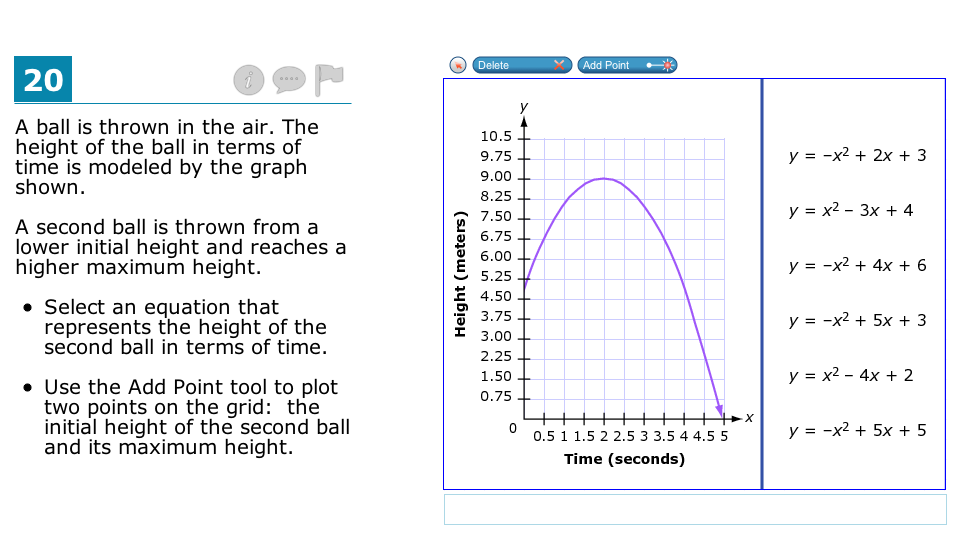
“The Obama Administration tells us what we can teach and what we can’t teach,” the Eagle Forum’s Schlafly said. “The mandatory aspect of it is, I think, very objectionable… the way they’re forcing states to take it.”
The federal government is imposing itself on state and district decisions, and Common Core “will eliminate local control of public education,” said Michael Dunn, who has served on the board of the Conejo Valley Unified School District since 2004 and works for the Los Angeles Fire Department.
The Federal government “is ‘overseeing’ and ‘assisting’ the states (to) write CC standards,” he said in an email. “The bottom line, goodbye local control of public education.”
Naison said Common Core came to New York with a mandate to automatically be implemented, with no exceptions.
“This was imposed cold turkey… This was done as a top-down decision at the level of state department and imposed without any training, without any preparation,” he said.
“There has always been standards to which instruction is aligned,” he said. “Never before has something… come from almost outer space, descending into schools with the mandate to immediately implement with no exceptions. This has never happened before in the history of the United States of America.”
[soundcloud url=”https://api.soundcloud.com/tracks/119658078?secret_token=s-vyMsX” width=”100%” height=”166″ iframe=”true” /]
Naison said he fears that the same results in New York could occur all across the nation.
“I think that what’s happening in New York is going to happen in other states if they’re implemented this way with no exceptions and no preparation… This is like an educational coup d’etat,” he said.
“Nothing has changed there. States have had standards for 20 years… The only difference is that 45 states have adopted the Common Core.” — Prof. William McCallum, University of Arizona
McCallum, who helped write the Common Core, said new standards are not being implemented any differently than other standards were before.
“The standards are being implemented by states the way they have always implemented standards. It varies from state to state how they do it,” McCallum said. “Some states exert more control, others give much of the power to school districts. Nothing has changed there. States have had standards for 20 years… The only difference is that 45 states have adopted the Common Core.”
Neal McCluskey, Associate Director of the Center for Educational Freedom at the Cato Institute, a libertarian think tank and public policy research organization headquartered in Washington, D.C., said he thinks that the government should not choose what students learn at all.
“I think having government impose on a national level is always a bad idea… all kids are different,” he told the Dragon Press on Friday. “What we need is a fundamentally different system, not one where government of any level dictates what everybody is going to learn. It’s one where we attach money to kids and give educators freedom.”
Not everyone is a critic, however. Foothill teachers and administrators say there is much to like about the new standards compared to the Mathematics California State Standards that have been in place since 1997.
In the past, California standards were called “a mile wide and an inch deep,” said Bill Huffman, chairman of Foothill’s math department.
“We had so many standards that we had to cover that we can never really spend so much time on one standard and get deep into it and see how it connects and relates with other concepts,” Huffman said. “We didn’t have enough time because we had to cover so many standards.”
Huffman said that Common Core tried to limit the standards so that teachers can go deeper into them and make connections with other concepts.
“The thing that people need to understand though is when you look at- say a Common Core Standard- there’s some prior knowledge, there’s mathematics involved that you need in order to understand… that concept, that maybe is not stated [directly] in Common Core,” Huffman said.
Huffman said that the prior knowledge of students will be a factor with Common Core standards.
“When you really unpackage the Common Core standards, what are you seeing? At first glance it looks like there’s less standards, but how much really?” Huffman said. “It really depends on what information the students are coming to you with. That’s going to be interesting.”
Huffman said that he believes that in total, there are less standards presented with Common Core.
Albrizzio agreed.
“I would say that part of it is reorganizing- they’re shifting things around, and part of it is they’re just leaving some parts off that they decided were not that important for a student to learn,” she said.
“For example, simplifying fractions- and I know that’s a very important topic- it’s not stressed as much and you shouldn’t spend a whole lot of time doing that,” Albrizzio said.
“I would say that part of it is reorganizing- they’re shifting things around, and part of it is they’re just leaving some parts off that they decided were not that important for a student to learn.” — Natalie Albrizzio, Ventura Unified School District
Foothill assistant principal Tedford said that many math teachers have already began to teach to Common Core in their traditional math classes. She said that in theory, students will be experience Common Core throughout the curriculum, including in daily lessons, projects and homework.
Foothill math teacher Anthony Villa says that the new idea of focusing on the process will require a change in how teachers grade.
“We’re actually going to have to change our grading system as far as grading math, because we’re going to be looking at not whether or not something is being done correctly, it’s whether or not student’s logic is sound in their process,” Villa said.
As Foothill gears up to teach the new standards, concerns are being raised over a mandate that students test their understanding of the content on computers rather than paper, beginning this year with a practice test.
At the beginning of this year, Governor Jerry Brown signed Assembly Bill 484, which officially ended the administration of Standardized Testing and Reporting (STAR) exams.
STAR test have been replaced by Smarter Balanced Assessments, new online tests that will be aligned to Common Core standards.
Albrizzio said that the new tests can most likely be taken on tablets, netbooks, laptops, and desktops computers.
Juniors will pilot either the English or math test this spring. If schools want to administer both, an extra fee must be paid. Results of the pilot will not be released to students or parents.
Both Smarter Balanced tests will be administered across the nation the following year, with scores released to the public.
[highlight ]Take a Smarter Balance practice test. Click here[/highlight]
Albrizzio said the 11th grade Smarter Balanced test might replace the California High School Exit Exam (CAHSEE), a test students must pass to graduate high school.
Talks also are occurring with public state universities for Smarter Balanced tests to replace the Early Assessment Program (EAP), a California test that that measures a high school student’s readiness for college English and math.
One immediate problem is that juniors would take the Common Core-aligned Smarter Balanced test before they have had much experience with a Common Core curriculum.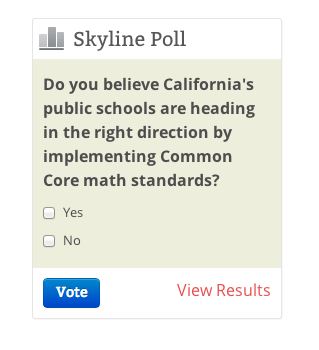
Some fear this might negatively impact their ability to graduate or place into higher math classes at state universities.
“That’s not a Ventura Unified problem, that’s a national problem,” Albrizzio said, adding that she believes the CAHSEE cut-off points to graduate might be lowered temporarily out of consideration of this.
The new test will be computer adaptive, meaning the test questions will change during the test depending on the student’s performance.
“If you answer a question and you don’t do very well, it will drop down and down until it gets to a comfort level for you, and then your report will say ‘this is where you tested out at,’” Albrizzio said. “Or, if you go in and you’re doing really good, it will keep ratcheting up the level and you might report at being higher than the actual grade you’re in.”
“I think that younger students in particular will have to be taught keyboarding skills and mouse skills.” — Valerie Chrisman, Ventura County Office of Education
The computer adaptive test can also align the type of questions a student must answer to their particular skill sets, said Valerie Chrisman, associate superintendent of Educational Services at the Ventura County Office of Education in Camarillo.
“If an English learner understands the concept but the vocabulary is too difficult, then the computer will ask the question again with different language, so it will enable the English learner to respond and surely show what they know,” Chrisman said.
One of the potential issues is teaching students with a wide range of technology experience the skills necessary to perform well on the tests.
“I think that younger students in particular will have to be taught keyboarding skills and mouse skills,” Chrisman said. “It will be important that they understand how to manipulate the technological items on the test, so that will be a new part of the teaching that will have to happen.
“Right now we don’t have the infrastructure for that, so I am concerned that we say we want to do this but it may not be a feasible option.” — Anthony Villa, Foothill Technology High School
Huffman agrees that students are going to have to understand how to show their math process on a computer.
“How do you express yourself mathematically on a computer screen? If you’re going to say, 2 raised to x power, are students going to be comfortable with those keys?” he said. “At first, maybe not all students, but I think that over time it will be a part of their education.”
Villa said he is concerned about the capability of the district to successfully administer the online test.
“The only problem is logistics obviously, because if you’re going to have thousands of kids all taking a test in the same time you have to be able to have a server that’s going to be able to handle that,” Villa said.
[soundcloud url=”https://api.soundcloud.com/tracks/119662626?secret_token=s-Bsmnz” width=”100%” height=”166″ iframe=”true” /]
“Right now we don’t have the infrastructure for that, so I am concerned that we say we want to do this but it may not be a feasible option,” he said.
Chrisman said Ventura Unified and the County Schools office have already taken measures to avoid this problem.
“What happens is everybody is on the internet at one time throughout our county doing these assessments,” Chrisman said. “We’ve already planned for that and increased really, really significantly the bandwidth in Ventura County in preparation for the assessments.”
James Milgram, the Stanford professor who served on the Common Core Validation Committee, sees the logistics of online testing as far too difficult to be successfully implemented.
“Online testing is a pipe dream,” he said.
[highlight ]Tomorrow on The Foothill Dragon Press:[/highlight]
Part 2: “Incoming freshmen to experience sweeping math change at Foothill as district chooses “integrated pathway” on heels of Common Core,” by Fidelity Ballmer, Foothill Dragon Press staff writer
Photo Illustration: Kazu Koba/ The Foothill Dragon Press


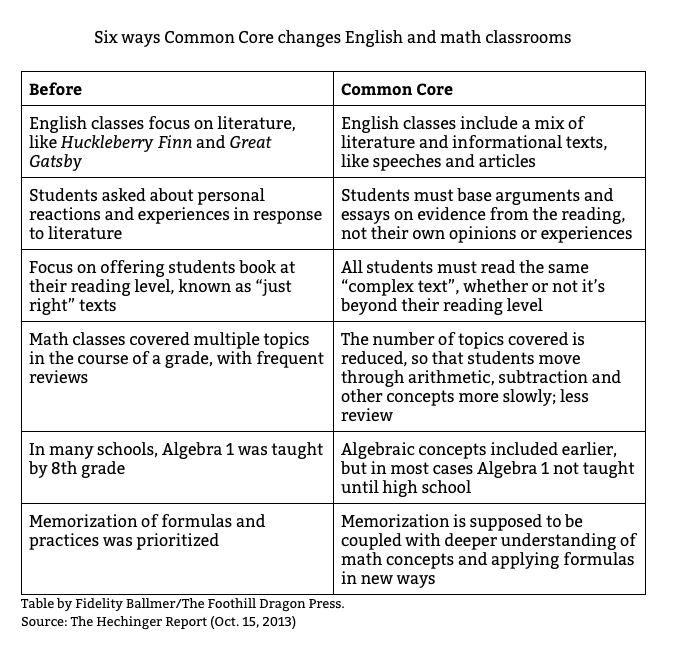
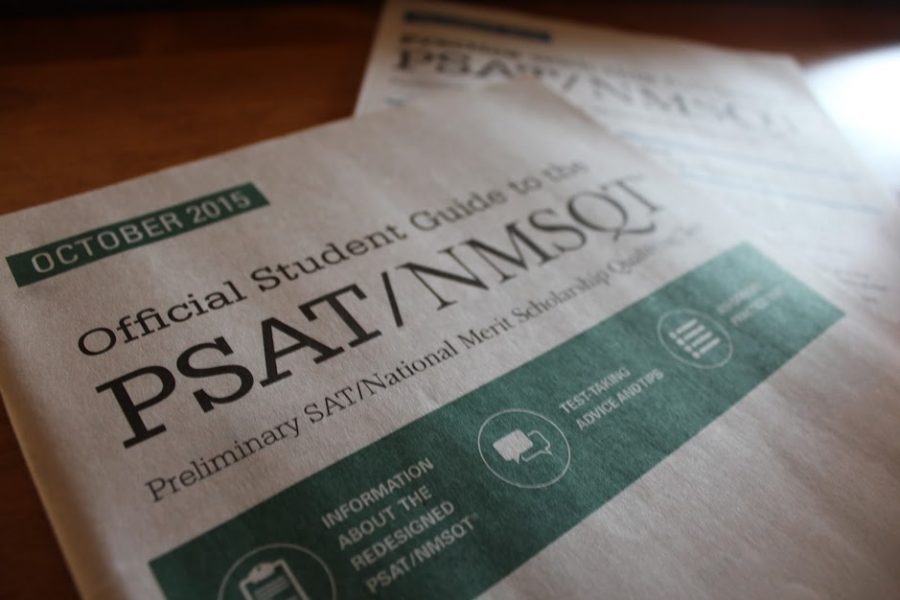
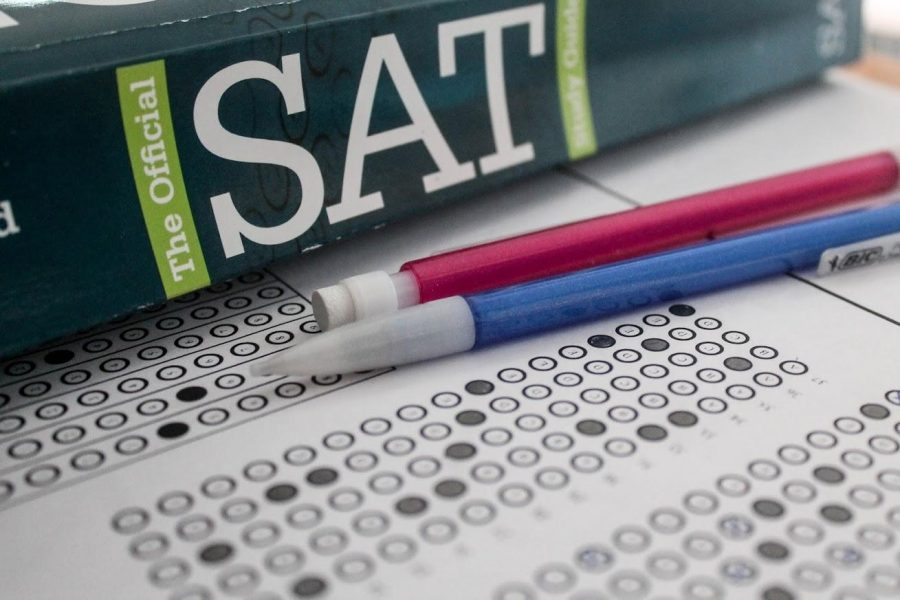
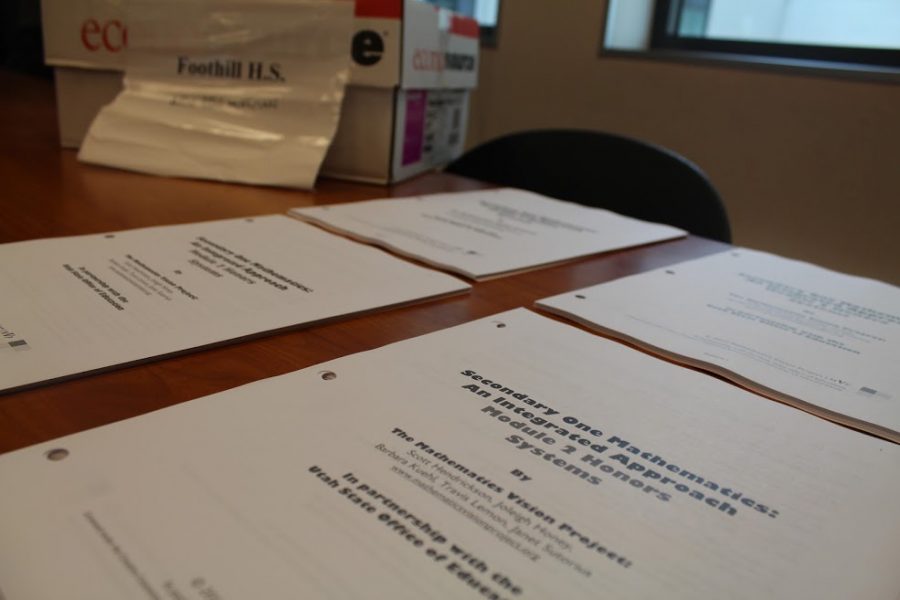




Nicholas Tampio • Jul 25, 2021 at 1:52 pm
I am the author of Common Core (Johns Hopkins University Press 2018) and several peer-reviewed articles on the Common Core.
In my judgment, this was one of the best articles written on the Common Core when the debate about it was at its peak.
Eric (rick) Nelson • Mar 15, 2019 at 8:13 pm
Scientist who study how the brain works are virtually unanimous that the Common Core Math Standards unfortunately ask students to solve problems in ways that the brain of student learners, especially in the primary grades, simply cannot do. The reasons have to do with “limitations in the working memory where the brain solves problems.”
For the science, see http://www.ChemReview.Net/CCMS.pdf
When math standards deny science, the results for students are not going to be good. Thanks for covering this important issue.
— rick nelson
Christopher • Nov 12, 2013 at 1:23 pm
If you want to learn what the Common Core is, read this article. Change is always hard, especially for the older folks. I’m betting that this won’t be hard to integrate, and one day we’ll look back and wonder why this wasn’t implemented earlier. Way to go Fidelity Ballmer for bringing us the multi-faceted opinions and supporting it with hard facts… I like the little dragon pics, too.
Katie Tedford • Nov 11, 2013 at 10:12 pm
Wow! You did an amazing job of covering an extremely complicated issue! You did a great job of reaching outside of FTHS to contact experts in the field. Very well done, looking forward to part 2.